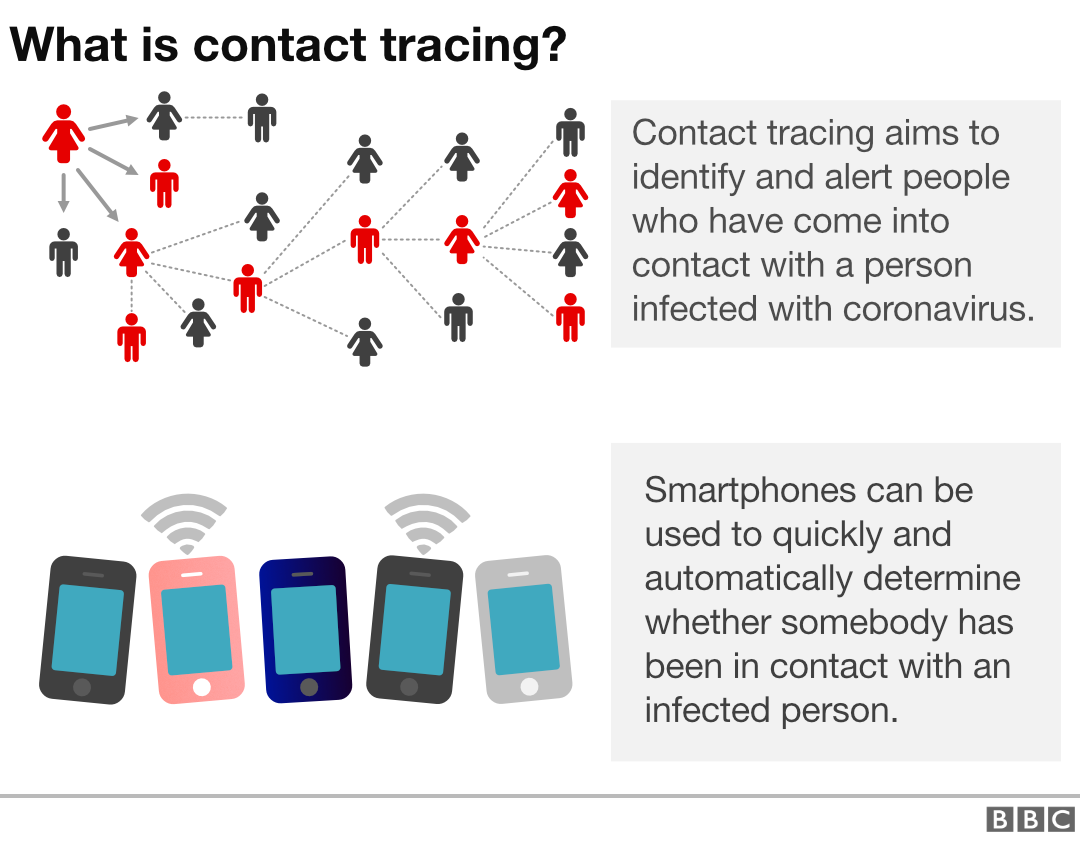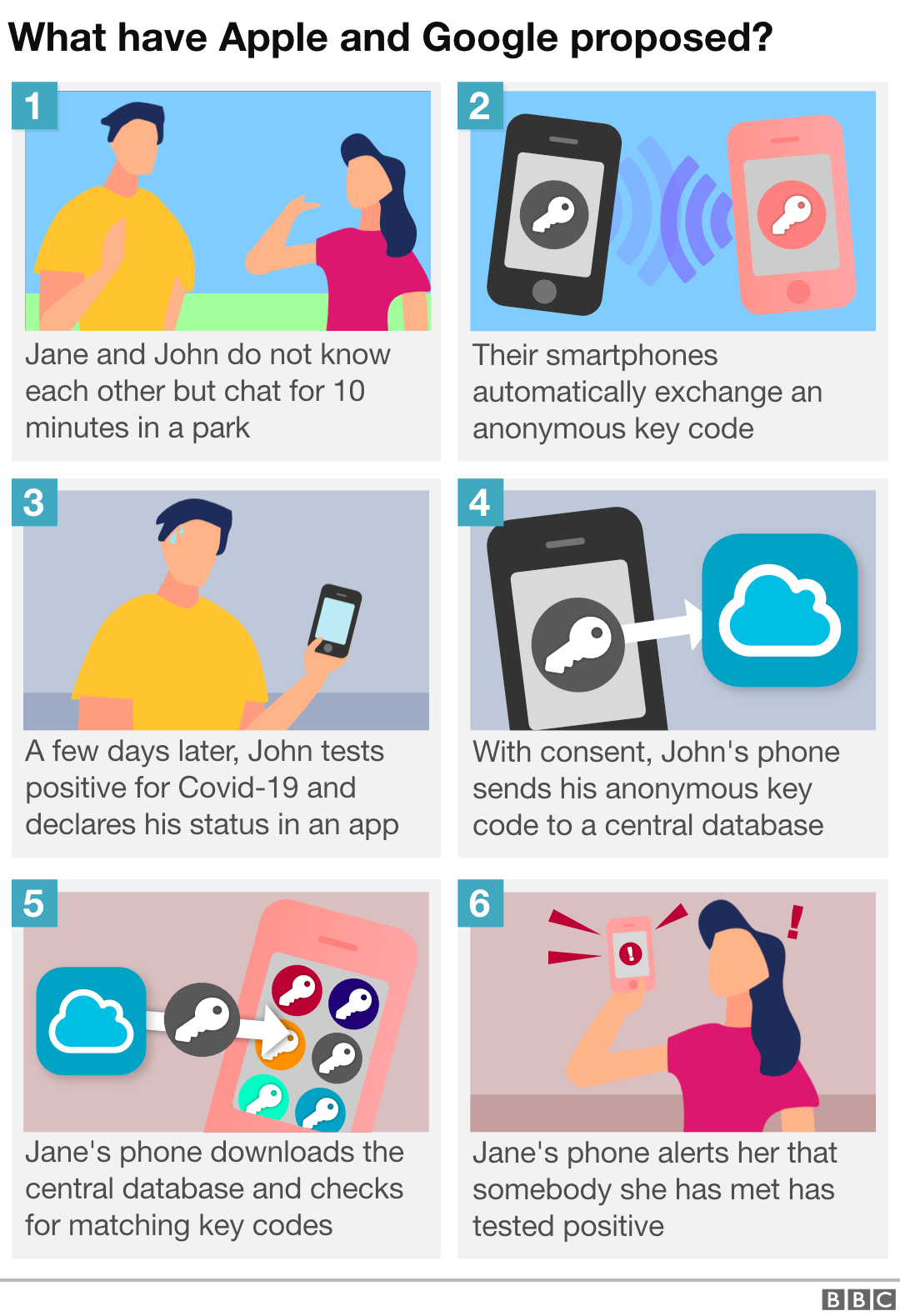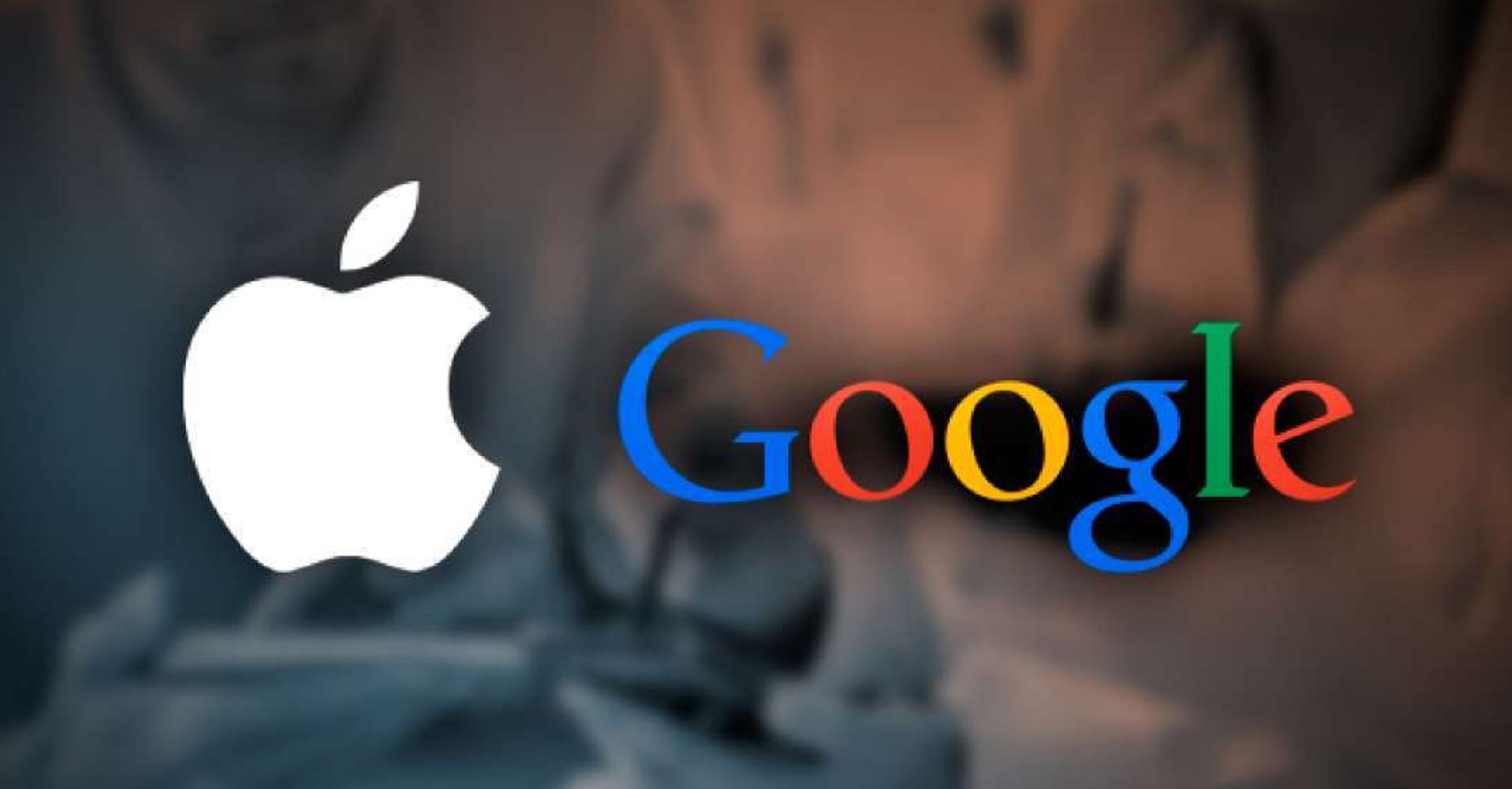Apple and Google are jointly developing technology to alert people if they have recently come into contact with others found to be infected with coronavirus.
They hope to initially help third-party contact-tracing apps run efficiently.
But ultimately, they aim to do away with the need to download dedicated apps, to encourage the practice.
The two companies believe their approach – designed to keep users, whose participation would be voluntary, anonymous – addresses privacy concerns.
Their contact-tracing method would work by using a smartphone’s Bluetooth signals to determine to whom the owner had recently been in proximity for long enough to have established contagion a risk.
If one of those people later tested positive for the Covid-19 virus, a warning would be sent to the original handset owner.
No GPS location data or personal information would be recorded.
“Privacy, transparency and consent are of utmost importance in this effort and we look forward to building this functionality in consultation with interested stakeholders,” Apple and Google said in a joint statement.
“We will openly publish information about our work for others to analyse.”
President Trump said his administration needed time to consider the development.
“It’s very interesting, but a lot of people worry about it in terms of a person’s freedom,” he said during a White House press conference.
“We’re going to take… a very strong look at it, and we’ll let you know pretty soon.”
The European Union’s Data Protection Supervisor sounded more positive, saying: “The initiative will require further assessment, however, after a quick look it seems to tick the right boxes as regards user choice, data protection by design and pan-European interoperability.”
But others have noted that the success of the venture may depend on getting enough people tested.

Apple is the developer of iOS. Google is the company behind Android. The two operating systems power the vast majority of smartphones in use.
Some countries – including Singapore, Israel, South Korea and Poland – are already using people’s handsets to issue coronavirus contagion alerts.
Other health authorities – including the UK, France and Germany – are working on initiatives of their own. And some municipal governments in the US are reportedly about to adopt a third-party app.
The two technology giants aim to bring coherence to all this by allowing existing third-party apps to be retrofitted to include their solution.
This would make the apps interoperable, so contact tracing would continue to work as people travelled overseas and came into contact with people using a different tool.
Apple and Google have been working on the effort for about two weeks but have not externally revealed their plans until Friday.
If successful, the scheme could help countries relax lockdowns and border restrictions.
Phone-based matches
The companies aim to release a software building-block – known as an API (application programming interface) – by mid-May.
This would allow others’ apps to run on the same basis.

Records of the digital IDs involved would be stored on remote computer servers but the companies say these could not be used to unmask a specific individual’s true identity.
Furthermore, the contact-matching process would take place on the phones rather than centrally.
This would make it possible for someone to be told they should go into quarantine, without anyone else being notified.
BBC / Balkantimes.press
Napomena o autorskim pravima: Dozvoljeno preuzimanje sadržaja isključivo uz navođenje linka prema stranici našeg portala sa koje je sadržaj preuzet. Stavovi izraženi u ovom tekstu autorovi su i ne odražavaju nužno uredničku politiku The Balkantimes Press.
Copyright Notice: It is allowed to download the content only by providing a link to the page of our portal from which the content was downloaded. The views expressed in this text are those of the authors and do not necessarily reflect the editorial policies of The Balkantimes Press.

